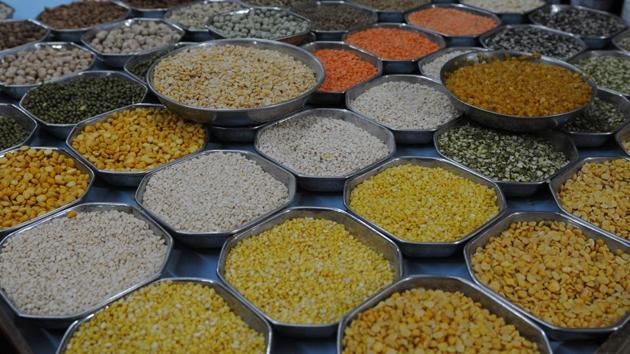GSI planning to study levels of heavy metals in food items, air in Delhi
The GSI’s team in Kolkata had identified diesel exhaust from vehicles as the chief culprit there.
The Geological Survey of India (GSI) will conduct a study to find out the levels of heavy metals, including lead, in Delhi’s air and the food items sold on the streets of the capital.

A similar study by a GSI team in Kolkata — the first-of-its-kind in India — had recently found that raw food items such as fish, chicken, biscuits, dal, spices and also basil leaves, sold near the city’s streets, contain lead concentrations higher than safe limits.
The GSI’s team in Kolkata had identified diesel exhausts of vehicles as the chief culprit there.
“This type of study is rare in the world. A few have been conducted in the US and France. A new machine has helped us to pinpoint diesel as the chief source of lead and there is no ambiguity in the findings,” Dipayan Guha, director of geochronology and isotope geology division of GSI, had earlier told HT.
Prolonged exposure to high concentrations of Lead can cause permanent damage to the kidney and liver. Children are more at risk because lead exposure can reverse their brain growth and cause irreversible damage.
After the findings in Kolkata, the GSI’s office in Delhi suggested a similar study for the national capital. GSI departments are now brainstorming on the feasibility of the project and a final decision is likely on January, 2018.
“These studies can take up to two years. The sampling has to be taken extremely carefully so that there is no contamination. If the project is taken up, the samples have to be brought to Kolkata for analysis and study,” said Guha.
That the main source of lead was found to be emissions from diesel vehicles could raise more concern as Delhi has a much higher vehicular fleet that Kolkata, out of which a major portion is diesel-run vehicles.
“Though petrol-driven vehicles run on unleaded petrol, the fuel is often adulterated with kerosene, which could result in lead emission,” said Kamal Soi, member of the National Road Safety Council.
Delhi has over one crore registered vehicles, out of which 63.21 lakh are two-wheelers. The Central Pollution Control Committee recently informed the NGT that vehicular emissions contribute 20% to Delhi’s foul air and out of this, 30% emission is contributed by two-wheelers.
D Saha, head of the air quality laboratory at Central Pollution Control Board, said: “Lead particles in the air automatically get deposited on any surface. They are churned up and mix with the air when the soil is dug up due to construction activities.”



